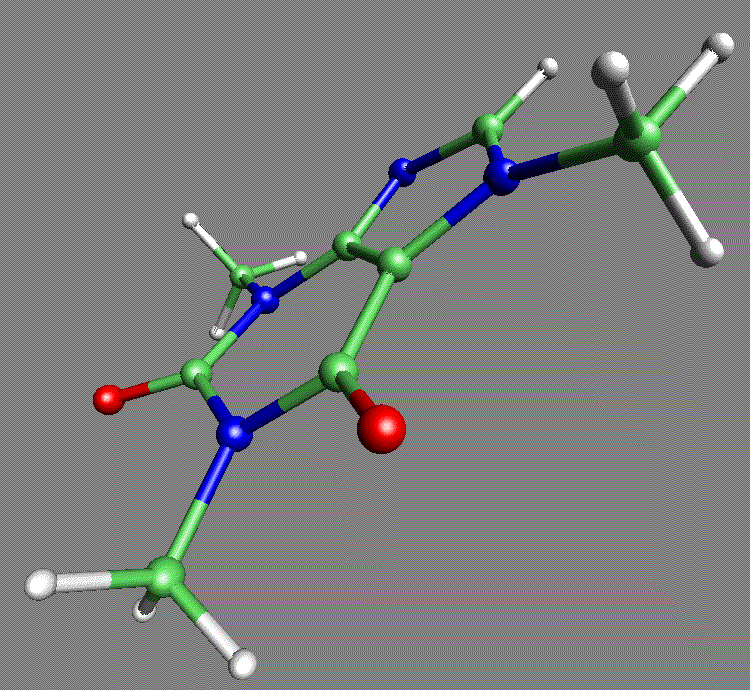

Thesis: The negative effects of caffeine are sufficient enough that individuals should limit their consumption
Caffeine is a very common chemical substance. It can be found in a number of foods, beverages, and other dietary supplements that are common to our everyday lives. From that first cup of coffee to help us wake up, to that last piece of chocolate that we snack on before bed, caffeine is entering our bodies in many different facets.
The purpose of this web site is to inform the reader of the potential dangers of high dietary caffeine intake. Caffeine is a biochemically active compound. It has effects on both the mind and body. After viewing these pages and links, one should come to the realization that caffeine intake should be limited to between 100 and 300 mg/day. Although the magnitude of the effect of a particular dose differs between individuals, large doses are always harmful.
I.
Chemistry
- This link contains physical information regarding the chemical caffeine
and its sources.
A. Synonyms
B. Physical Properties
C. Sources and Content
D. General Mechanism
E. Overdose
II.
Physiological Effect
- Here are the effects of caffeine on the body.
A. Cardiovascular
B. Gastrointestinal
C. Muscular/Skeletal
D. Reproductive
E. Respiratory
III.
Psychological Effects
- Here are the effects of caffeine on the mind.
IV.
Conclusion
Home
- Chemistry
- Physiological
Effect
Psychological
Effect - Conclusion
Other
links - Contact
Last updated: December 6, 2000